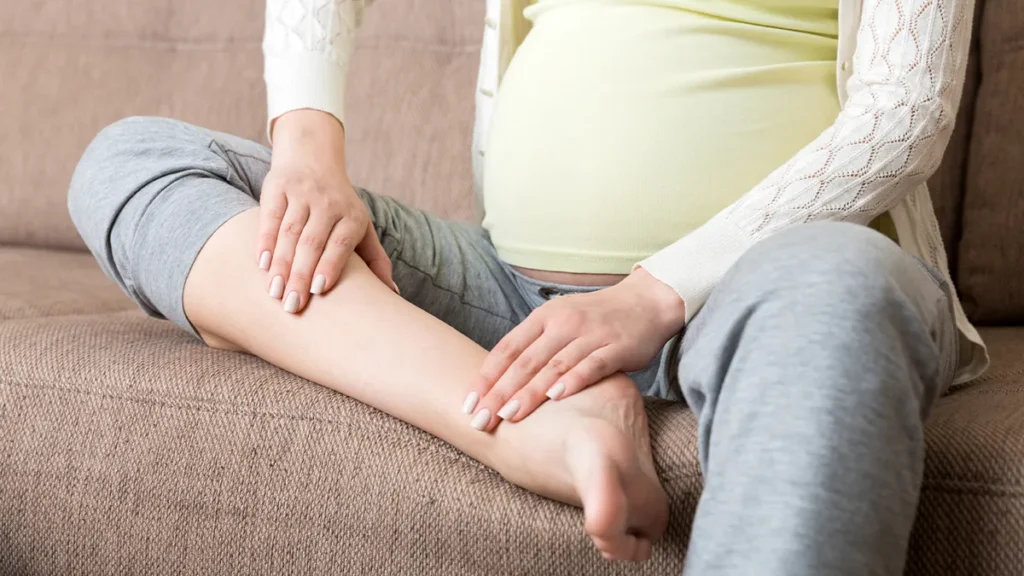Waking up at night with a sudden pain in the calf is an experience that many expectant mothers know well. Leg cramps during pregnancy are a common issue, especially in the second and third trimesters, and often occur just when one is most relaxed: during sleep. They can last a few seconds but leave a soreness that lingers for hours. Why cramps occur The causes are not entirely unique, but rather a combination of factors:
- Blood circulation slows down, both due to increased blood volume and the pressure of the uterus on the blood vessels in the legs;
- Muscles are more prone to fatigue, especially after a day spent on their feet;
- Mineral deficiencies (magnesium, potassium, and calcium) can promote involuntary contractions;
- Posture and hormonal changes also play a role, altering muscle balance.
When they occur They usually appear in the evening or at night, just when the legs are stretching out. Some women notice them after walking for a long time or at the end of a tiring day. How to deal with them There is no universal remedy, but there are many small useful strategies:
- Regular stretching: stretching the calves before bed can reduce the frequency of nighttime cramps.
- Hydration: drinking enough water keeps the muscles balanced.
- Movement: walking, swimming, or prenatal yoga stimulate circulation.
- Massages and heat: a gentle massage or a warm cloth can relax the muscles.
- Balanced diet: fresh fruits and vegetables, whole grains, and nuts help maintain good mineral levels.
If a cramp strikes, stretching the affected leg and flexing the foot upwards is a simple gesture that often helps immediately. In summary Leg cramps are annoying but almost always harmless. With a bit of prevention and attention to lifestyle, it is possible to reduce their impact and face the nights of pregnancy with more serenity. Note: The contents of this page are for informational purposes and do not replace professional advice. In case of symptoms, doubts, or medical needs, always consult a qualified doctor.


